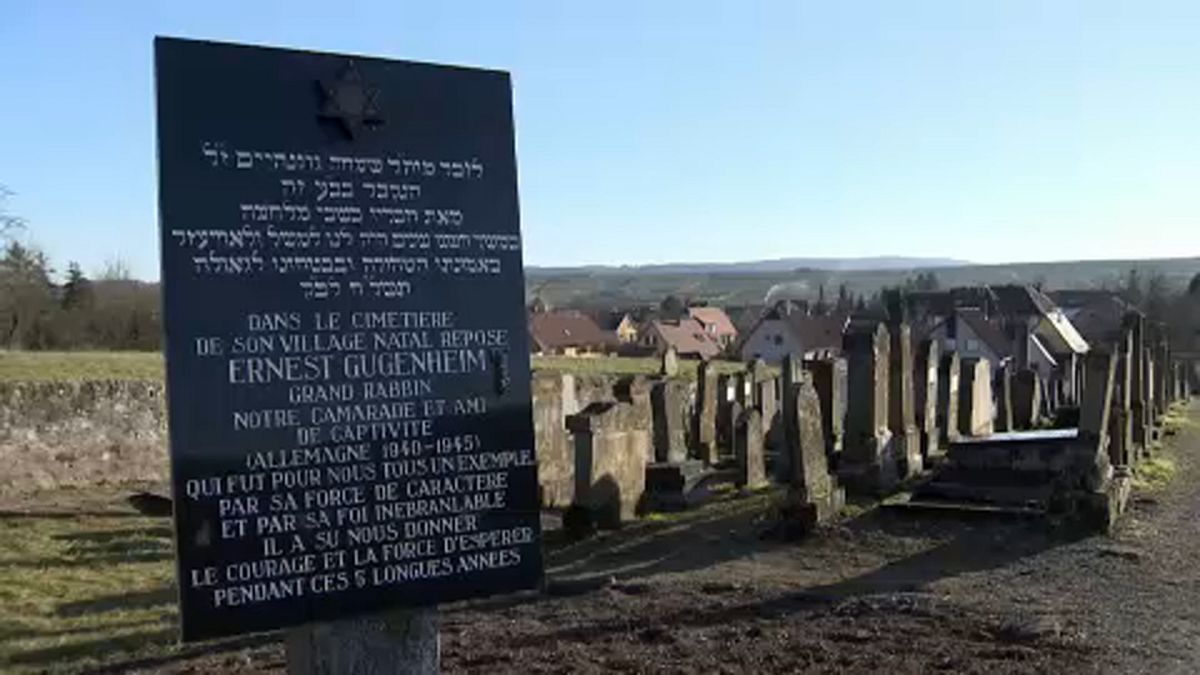'We don't know why they attack (the graves), they are dead,' said one local in the community near Strasbourg.
Locals near Strasbourg were left shocked last month when more than 100 graves at a Jewish cemetery were covered with swastikas and anti-Semitic graffiti.
While the graves have now been cleaned, some are still searching for answers.
"I was asked to come and remake the war memorials," one local said. "It's not normal for us. We don't know why they attack (the graves), they are dead, so I don't know why they come to attack the dead like that. I don't know, I can't tell you."
The graffiti is just one of a rising number of anti-Semitic incidents in France. Attacks against Jewish people rose 74% in 2018, police said.
Alsace, the French region where the 100 graves were vandalised in December, borders Germany and has its own past to reckon with. The reality of German occupation during World War II is part of Maurice Dahan's personal history.
"I am married to a woman whose father survived Auschwitz, tattooed with the number 1950B," said Dahan, president of the Jewish consistory for the Bas-Rhin region. "Her mother survived the Bergen-Belsen camp."
The spike in such crimes is partly explained by far-right messages spread online.
But, the issue touches religious faultlines: France has the biggest population of Jews and Muslims in Europe.
"There are the despicable things like a swastika on a door, yes," added Dahan. "But then there were even more horrible acts, right here in Strasbourg there was a gentleman who was stabbed by, and I quote, a madman who shouted Allahu Akbar."
A recent survey from the American Jewish Committee found 70 per cent of Jews in France said they had been victims of anti-Semitism.
But living in fear is not an option for Maurice Dahan.
"We are not afraid of your graffiti. We will erase your graffiti and we will forget about it and we will continue to live with our heads held high because we know what we bring to the world," states Dahan.
In Strasbourg, the modern synagogue rebuilt after the war, serves as a lesson for future generations, as Dahan explains.
"This symbol - the six-branched candlestick. Six branches in memory of the six million Jews who died during the Holocaust," he said.
"Europe must not forget that. Europe learns, but must never forget."


